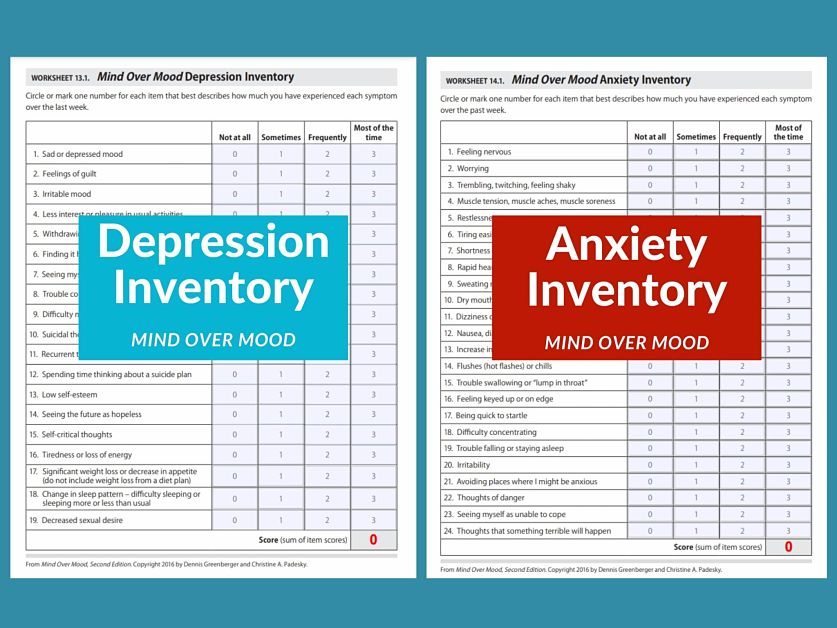By Christine A. Padesky, PhD
Clinicians frequently write and ask if we have established norms for the Mood Inventories in the Mind Over Mood book.
We do not have established norms for our Mind Over Mood Depression Inventory (MOM-D) or Mind Over Mood Anxiety Inventory (MOM-A). The Mind Over Mood inventories are more appropriate to use for self-monitoring and to compare client scores over time and document progress in therapy. They are not used to classify depression or anxiety severity.
To provide cut-off scores on the inventories related to likely depression or anxiety severity, we would need data on several thousand people. To my knowledge, no one has conducted the large scale studies required to determine their testing properties. However, research studies (see links below) have examined the concurrent validity of our scales with the Beck Depression and Anxiety Inventories (which have been widely used in research) as well as the Burns Depression Checklist and Anxiety Inventory. Scores on the MOM-D and MOM-A are highly correlated with scores on these inventories.
Thus, since the Mind Over Mood inventories have a similar number of items as the Beck inventories, I usually informally advise clinicians that they can use the Beck scoring guides as a rough approximation for our inventories. For example, scores in the mid-teens on the MOM-D probably indicate mild depression, scores above 20 moderate depression, scores above 30 may indicate more serious depression. However, as is true with all depression self-report measures, scores can vary from individual to individual.
As a REMINDER:
- no self-report questionnaire can be used for diagnostic purposes or as an exact guide to an individual’s level of depression or anxiety
- variations in an individual’s scores over time can and usually do reflect mood improvement or worsening
- we recommend clinicians use the MOM-D and MOM-A to track an individual’s response to treatment
- clients can use changes in scores to track the impact of skills practice.
REFERENCES
Beal, D., Cox, T., Brittain, S, Brubaker, R., & Falkenberg, S. (2004) The concurrent validation of the Mind Over Mood Depression Inventory. Presented at the annual meeting of the Southeastern Psychological Association, Atlanta, GA.
Cox, T., Beal, D., and Brittain, S. (2004). The concurrent validity of the Mind Over Mood Anxiety Inventory. Presented at the annual meeting of the Southeastern Psychological Association, Atlanta, GA.



